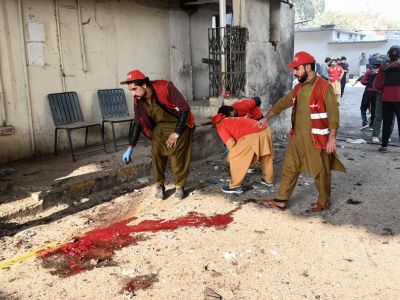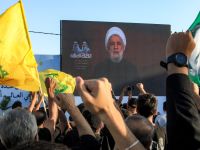The World Health Organization will send a team of physicians to Iraq Monday to determine whether depleted uranium shells used by US troops during the Gulf War have caused an increase in Iraqi cancer rates, reported Washington Post on Friday.
The eight-member team hopes to lay the groundwork for the first major international study since the Gulf War into Iraqi patterns of cancer, kidney diseases and other congenital disorders, said the report, quoting WHO spokesman Gregory Hartl as saying.
"The Iraqis have been saying for a while that there has been an increase in cancers caused by depleted uranium," Hartl said. "If we have determined there has been an increase, then we will look at possible causes."
The United States used depleted uranium in tens of thousands of munitions during the 1991 Gulf War and the 1999 NATO air campaign against Yugoslavia. The metal's extreme density helps projectiles penetrate armor.
The Pentagon maintains that depleted uranium, which is only 40 percent as radioactive as naturally occurring uranium, poses no radiation threat to humans.
According to AFP in January, air samples taken near the border with Kuwait revealed levels of ionizing radiation in the atmosphere 20 times higher than in the Iraqi capital, Baghdad.
It quoted low-level radiation specialist Chris Busby as saying that the samples were taken two months earlier around a battlefield of the 1991 Gulf War.
The US and Britain have said the uranium particles pose a health risk only if inhaled immediately after the explosion and in significant quantities.
Busby said the British defense ministry had dangerously underestimated the health risks.
Fear and furor escalated in Europe over possible after-effects of depleted uranium shells fired by NATO in the Balkans, with reports of a growing number of cancer victims among former personnel there
Hartl told the Post that the WHO has found no evidence linking leukemia to depleted uranium. But he said the UN health organization, which is based in Geneva, would try to determine whether Iraq's concerns about an upswing in cancer are legitimate.
He said the team would seek to establish a national cancer registry to obtain accurate statistics on cancer victims. Then, he said, the WHO might examine a wide range of possible causes, including Iraqi lifestyle, diet and environmental factors – Albawaba.com
© 2001 Al Bawaba (www.albawaba.com)









